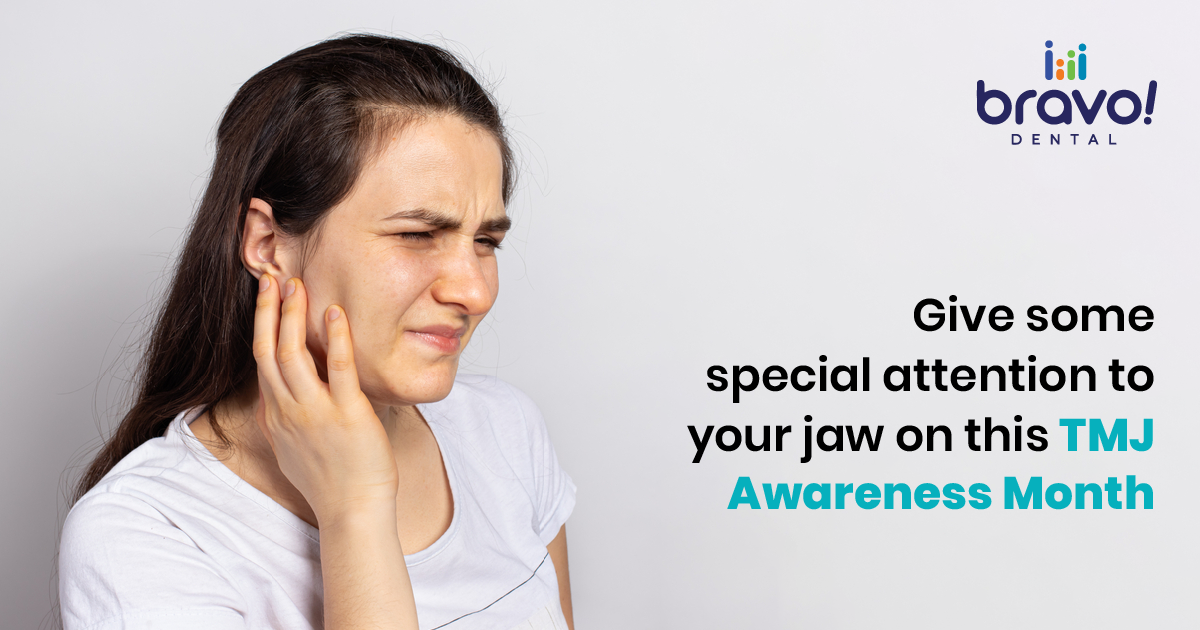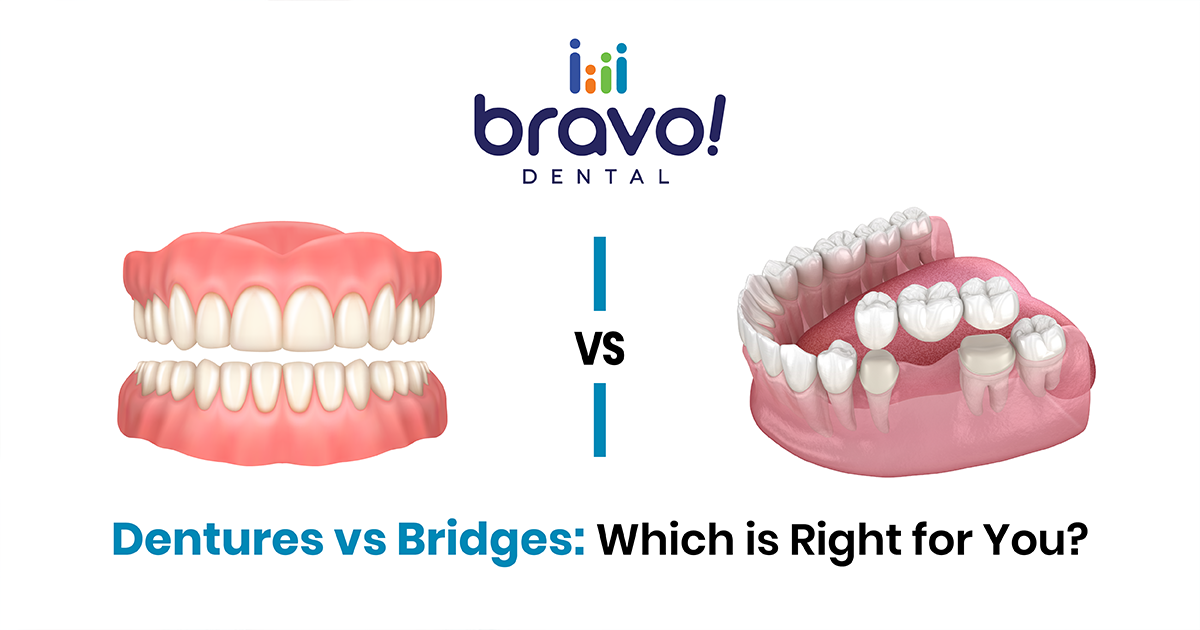
It is not only the middle of the fall and the beginning of the holiday season but is also TMJ Awareness Month. Your day-to-day activities speaking, chewing, and singing all depend on your jaw. Yet, this tiny body part is often taken for granted until it begins to ache. At Bravo! Dental, we believe it is our responsibility to inform our patients about TMJ disorder. This blog covers the causes, signs and treatments for TMJ disorder.
What is TMJ disorder?
Your jaw acts as an opening door to savor your favorite dishes. The temporomandibular joint (TMJ) connects your jawbone and skull, which sounds like a sliding hinge. There is a joint on each side of the jaw. Temporomandibular disorders, sometimes known as TMDs refer to TM Joint disorders that includes jaw dysfunction, pain, and discomfort that may interfere with day-to-day activities. Sadly, neglecting TMJ will only worsen it.
What leads to it?
The parts of the jawbones that work with the temporomandibular joint are separated by a tiny disk that enables smooth movement of your mouth. When a person has a TMJ condition, the disk is either broken, out of alignment, destroyed by arthritis, or physically injured.
TMJ often results from:
- Misaligned jaw.
- Clenching and grinding (bruxism).
- Injury to the body.
- Stress.
- Trauma.
- Arthritis.
- Bad posture.
What are its symptoms?
The best way to be sure to receive treatment as quickly as possible is to recognize the symptoms of TMJ issues. The most typical signs to be on the lookout for are as follows:
- Pain in the jaw, face, back, or neck.
- Having a congested or painful ear.
- Hearing loss (tinnitus).
- Difficulty chewing.
- Recurring migraines or headaches.
- Lockjaw (jaw stuck open or closed).
- Uneven bite numbness/ tingling in the fingers.
- Jaw popping or clicking sound.
- Teeth clenching and grinding (bruxism).
What are its treatments?
Most TMD cases are temporary and go away on their own in a week or so, although this isn’t always the case. Your jaw probably needs treatment if your pain continues, especially if they worsen. The dentist might suggest ice packs, physical therapy, moist heat, medicine, splints, and orthodontics treatments. Transcutaneous Electrical Nerve Stimulation (TENS), trigger-point injections, or ultrasound therapy will likely be the next options if none of these are effective. Jaw surgery can be used to address extreme situations.
What are its home remedies?
The dentist may also advise making some changes to your regular routine in addition to professional therapy to help you manage your pain. Several at-home remedies include:
- Working to improve your posture.
- Avoid eating anything sticky or chewy, such as gum.
- Massaging the face often.
- Using moist heat and cold alternately to relax facial muscles.
- Using night guard to rest your jaws in comfortable position that reduces teeth wear down.
If you have noticed any of the above signs, don’t keep the dentist in the shadows! Schedule an appointment at Bravo! Dental and tell us your symptoms. We can identify the issue’s root cause and offer suggestions for the best course of action. Before you treat yourself to all the sticky, sweet perks of year-end celebrations, visit us this November for a TMJ checkup.
happy to hear from you, contact us
Fill out the contact form below and Feel free to send any question or query.




